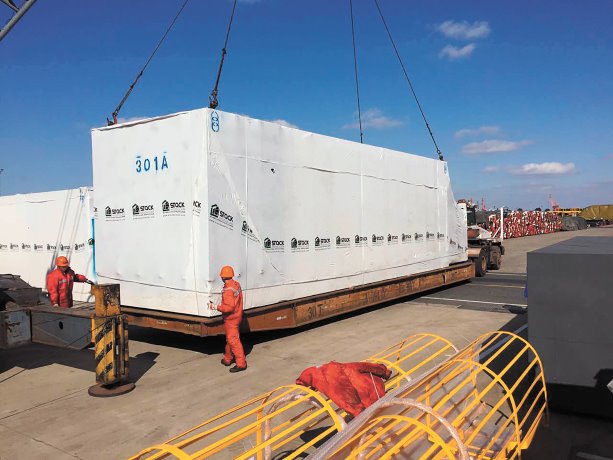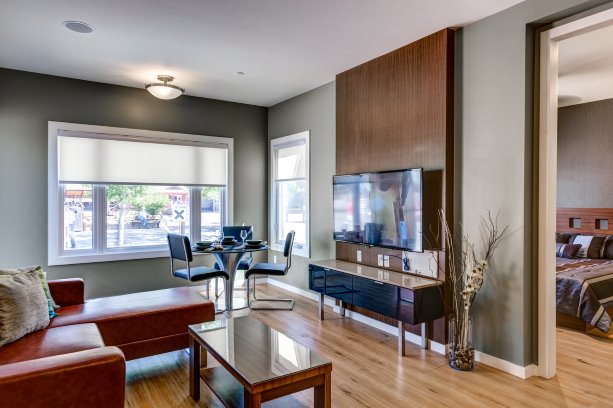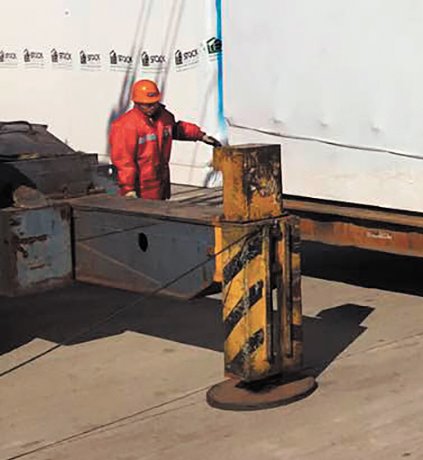Stack Modular, a company with bases in both Calgary, Alta. and China, is landing steel modular construction units in Canada at rates that are comparable to wood modular units built in Canada, according to its founder and president James Dunn.
Dunn, a panel member for the Feb 15-16 Vancouver Buildex session T33: Steel Modular Construction: Processes, Benefits, Challenges and Future Outlook, said there is the potential for developers to achieve a faster payback on investments using modular construction in markets such as Toronto and Vancouver and steel modular units offer advantages over wood.
"When I was in construction, I was told a rough rule was that one-third of the cost was labour, one-third was material, and one-third was equipment," said Dunn, who has worked in construction in Saskatchewan, Pennsylvania, California and also earned degrees in civil engineering and architecture. He has overseen the construction of buildings valued at $1 billion (USD). While visiting China, he saw the potential for using steel modular units and achieving significant building costs in construction.
Dunn’s company takes advantage of lower labour and material costs in China. The steel modular units which Stack produces and then ships to markets come furnished right down to the television sets mounted on the wall and the silverware in the drawers, said Dunn. Many of the materials that go into finishing a unit (including the steel) are manufactured in China and Stack can derive them at the source. "So, I am well on my way to beat any price line for labour and materials," he said.
Dunn said 80 per cent of the Stack staff is now based in Shanghai, China, where he created one of the first wholly foreign-owned entreprises (WFOE) by a Canadian. Units are manufactured and shipped via bulk carrier to ports for transportation to a site via truck. He said Canada has been slow to adapt to the use of modular construction, although it is common in other parts of the world.
"Modular has been at the forefront in Europe and an imperative in Australia and America," he said, adding it is especially popular in areas seeing downturned or stalled economies and where building owners are looking for innovation to lowering construction costs. "In places such as Oklahoma City where times are tough, building has to be innovative."
Marketplaces such as Toronto and Vancouver "are the furthest thing from desperate," he said, and, building owners have not been impacted in the same way.
But, Dunn believes that Vancouver and Toronto contractors and developers are missing an opportunity. Not just to develop a new construction method, but in yielding earlier revenue returns.
"The real benefit is that a building can be finished in a year, much earlier than a conventional building. There is so much less construction (in congested areas) and safety concerns (as units are fabricated in a factory). The real benefit is that the building owner can receive revenues earlier," he said.
Dunn believes that a construction company that can handle modular construction also has the opportunity to offer a broader range of options on building sites.
Stack, he said, is currently supplying steel modular units to a Tofino resort and hotel development with the project designed by the Vancouver architecture firm DIALOG. Other areas that Stack Modular units are being used are in Alberta’s apartment and oil and gas sectors, residential construction in New York, and the oil and gas sectors in both Mexico and Texas.
By using steel, said Dunn, there is the potential to move into larger structures as provincial building codes, while they vary, top out at six-storey for wooden buildings. Steel, he believes, also offers greater fire safety.
DIALOG architect Vance Harris AIBC, AAA, MRAIC, LEED AP, also a panel speaker at the session, sees merits in using modular components. At the Tofino resort-hotel property, the owner is concerned that work crews on site hammering and congesting the site for prolonged periods, as would be required with traditional building, will disrupt the clientele, Harris said. Instead the owner opted for modular construction with the finished units delivered.
Harris called modular construction a construction methodology "with specific areas where it has real advantages."
Traditionally, modular construction has been used in B.C. to address topography issues such as industrial camps in remote areas or where sites have specific challenges or requirements such as the resort in Tofino.
The use of modular construction, Harris said, will ultimately depend on what the building owner wants to deliver to market and how much of that design lends itself to modular units. Modular units can be customized but the efficiency is gained in uniformity. "Customization and modular don’t always play as well together," he said. "It (modular) can be beneficial but is not applicable across the board."
Modular construction can save on costs as efficiencies are achieved by working within a manufacturing plant. "The real ability is to repeat forms (such as in hotel rooms or apartment suites)," he said, adding that prefabrication has entered B.C. construction industry in various forms with some repetition but prefabrication is not as complete a process as modularization.
Harris does not see modularization detracting from the role of the architect in terms of building design. "It is a building block like other building blocks (such as dimension lumber). Architects have created different designs with dimensional lumber for years. These (modules) are larger and you design with them."
Also presenting on steel module construction will be Roger Rowsell, Bird Construction’s vice-president of operations based in Newfoundland.
Buildex will feature a second panel on modularization. Session W17: Modular by Numbers — A General Contractor’s Perspective, will see a presentation on the relationship of construction costs and the various new ratios that are relevant to a successful solution.

1/2
A Stack Modular steel unit is delivered via freighter to the destination, then loaded onto a truck headed to the project site where a crane will position the unit for installation.
Photo: Stack Modular
2/2
Stack Modular’s steel modular units can be manufactured completely furnished with all items











Recent Comments
comments for this post are closed